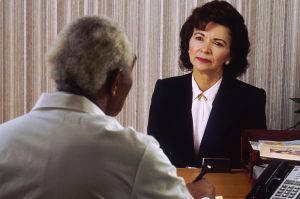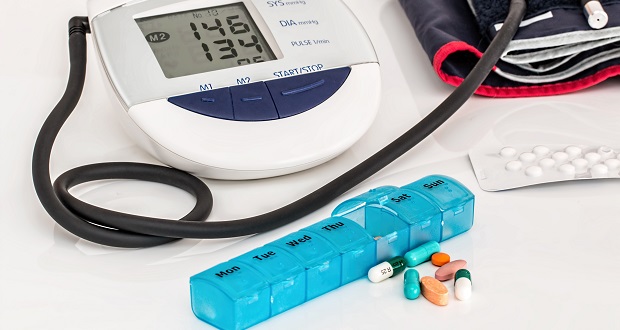One of the most important professional relationships you have (especially as you age) is with your doctor, and this relationship should be a partnership where each side is engaged in asking questions. The days when you sit silently across the desk from your doctor, listening intently to his or her words has long since passed. Doctors are overworked and inundated with more information than ever before; they have enormous pressure from insurance companies and drug companies that they have to sort through to find the right care for their patients. While your doctor has your best interests in mind, the best medical care comes when you are your own advocate and your doctor is your partner in supporting your longevity and wellness.
The first step to developing this kind of partnership is to find the medical professional who fits with your personality, someone you can respect and with whom you can have a conversation. I know insurance companies limit your choices but you almost always have choices. Take the time to find that person whose recommendation you trust, who will walk you through the mundane health issues smoothly, as well as the high stress ones.
Once you have found that doctor, have a frank conversation about your health concerns. The key here is that this must be a conversation—an exchange of ideas is not a monologue. The questions and answers that you share will give the doctor information that may not be in your medical record yet valuable nonetheless. When the doctor gives you advice, ask clarifying questions: if your doctor just told you to eat fewer carbs and you walk away not knowing what a carb is, you are not being your own advocate. If the doctor says you should be on high blood pressure medication, make sure you understand why you need a drug to control your blood pressure: is this a permanent fix or is it temporary until you are able to change your exercise and diet habits enough to lower your blood pressure?
 If you do research online about a medical concern and you bring this to your doctor, be ready for the doctor to disagree with your findings. Doctors have years of training and if they say you have a virus rather than ‘exploding head syndrome’ they are probably correct. But ask why they believe it’s a virus rather than a rare brain condition. If after listening to the advice and explanation you still believe that you suffer from something other than a simple virus, get a second opinion — that’s what being an advocate is all about. You are not a passive consumer of medical advice; this is your life, your wellness, your longevity.
If you do research online about a medical concern and you bring this to your doctor, be ready for the doctor to disagree with your findings. Doctors have years of training and if they say you have a virus rather than ‘exploding head syndrome’ they are probably correct. But ask why they believe it’s a virus rather than a rare brain condition. If after listening to the advice and explanation you still believe that you suffer from something other than a simple virus, get a second opinion — that’s what being an advocate is all about. You are not a passive consumer of medical advice; this is your life, your wellness, your longevity.
Throughout this article I alternate between saying ‘doctor’ and ‘medical professional’ and here’s why: if you use alternative medical practitioners, such as herbalists, therapeutic massage, etcetera, you still must be your own advocate for a postive medical experiences. Be an empowered health consumer on your own behalf and if you have a family member who is unable to take this role of advocate for themselves, be an advocate for them; it is one of the greatest gifts of love you can give a family member and you will learn a lot in the process which might help you down the road in your own health journey. If you want more information on how to be an empowered medical advocate for yourself visit: http://www.webmd.com/healthy-aging/features/be-your-own-health-advocate
As always, tell me what you think, and what have been your experiences with negotiating the medical world. I would love to hear about the ways that you have been empowered with your medical professionals.
Read more of Virginia Eaton’s blog posts here.
Virginia Eaton is the owner of Oakhurst wellness center Class: The Body Pastiche





